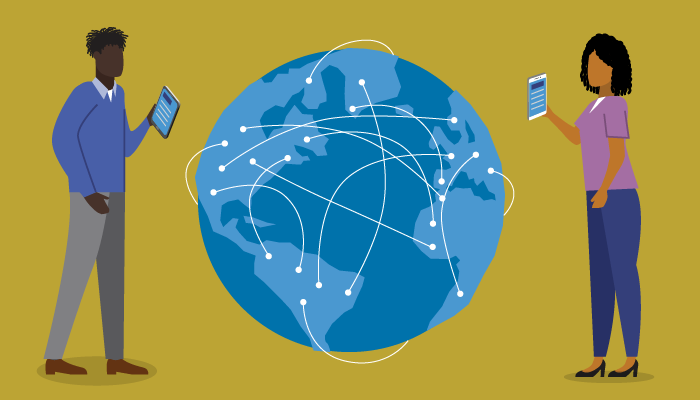
Ultimately, digital citizenship falls onto the shoulders of all school personnel so scholars and their parents/caregivers understand their responsibilities while students have 1:1 devices. Students should receive digital citizenship lessons before devices are distributed so they understand the practices of cultivating a positive, authentic digital footprint when they receive their devices.
School district responsible use policies and social media policies are a good place to start for understanding the expectations of the district. In addition, Common Sense Media has a plethora of resources that can be helpful for all groups. One resource, Common Sense’s Tips by Text program, can deliver text-based informational tidbits on digital citizenship.
Student technology teams can be helpful in promoting the creation of positive digital footprints. In some schools, students have created informative public service announcement videos that help students understand how to care for their devices, help them protect their personal data, or provide clarification on the responsible use policy expectations. Student tech teams enjoy creating the content, and who better to teach lessons on digital citizenship than peers.
Teachers and staff play an important role in the support of digital citizenship as well. The teaching and modeling of digital citizenship is a community practice that needs to be embraced and taught by classroom teachers, library media specialists, and other staff in the school. Tools for educators can be found at Common Sense Media. Schools that consistently immerse staff and students into conversations and activities on digital citizenship keep the topic at the forefront. It is important to keep the digital citizenship momentum going by executing monthly campaigns around specific topics like charging the device, learning about digital footprints, or using the case as a way to protect the device. Students can benefit from reminders, especially after long breaks or days off from school. Successful schools have discovered that awarding digital badges at the completion of lessons is an effective way to engage students in positive digital learning and behaviors.
Open houses at the schools are great ways to help reinforce device care expectations and digital citizenship concepts for parents/caregivers. Inviting families into schools to witness technology in action and being able to answer questions on how to best support students with devices is helpful. Successful schools consistently send information home to parents/caregivers with reminders and tips and tricks in technology use.
The inclusion of digital citizenship in the school district’s 1:1 program can help ensure that your students, learning community, and families are all working together to keep students safe and are working to help students put their best digital foot forward.
Let's connect and we'll send you the latest from Digital Promise.